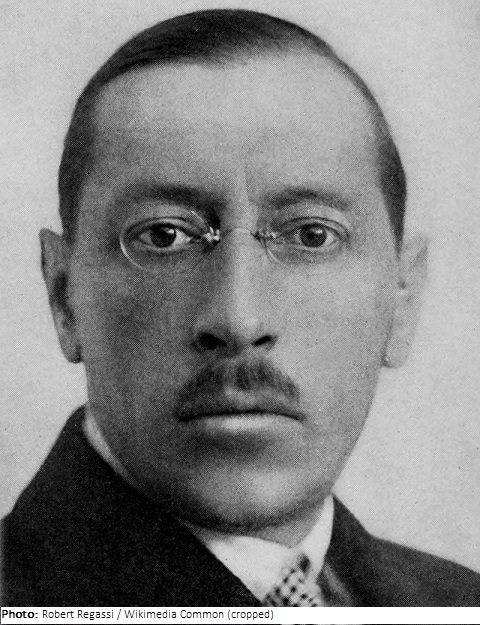Igor Stravinsky

Biographical information
| Roles | Referee |
|---|---|
| Sex | Male |
| Full name | Igor Fyodorovich•Stravinsky |
| Used name | Igor•Stravinsky |
| Original name | Игорь Фёдорович•Стравинский |
| Born | 17 June 1882 in Lomonosov, Leningrad (RUS) |
| Died | 6 April 1971 (aged 88 years 9 months 19 days) in New York, New York (USA) |
| NOC |  Soviet Union Soviet Union |
| Nationality |  Russian Federation Russian Federation |
Biography
Today, Igor Stravinsky is considered one of the greatest masters of 20th century music, whose works had a profound influence on the development of music. The son of a famous opera singer of the Russian Empire, Fyodor Stravinsky (1843-1902), Igor grew up in an artistic atmosphere. He first took piano lessons, then studied theory in 1900-03, but never attended a conservatory. Instead, he began studying law in St. Petersburg in 1901, but did not graduate.
Through the sons, Stravinsky met the composer Nikolai Rimsky-Korsakov (1844-1908), who taught him orchestration from 1905 and assisted him in composing his first symphony until Rimsky-Korsakov’s death in 1908. The turning point in Stravinsky’s life came when the famous impresario Sergei Diaghilev (1872-1929) commissioned him with a work for the Paris season of the Ballets Russes. This collaboration resulted in the masterpieces The Firebird (1910), Petrushka (1911) and Le sacre du printemps (1913). These works took their cue from the Russian school and were characterized by blunt polytonal harmonies and elemental, artful rhythms. Above all, Le sacre du printemps is still considered one of the boldest creations of modern music and caused a scandal at its premiere. His collaboration with Diaghilev and his preoccupation with Russian subjects ended in 1922. During this period, the composer lived alternately in Paris and Switzerland.
In about 1919 Stravinsky’s interest in older music began a neoclassical phase. His Piano Concerto offered him the opportunity to perform as a soloist as well; he played, for instance, on his first tour of America. The culmination of this phase of abandoning grandiose sonic structures was the operatic oratorio Oedipus Rex, composed in 1927. A turn toward religious music was evident in his Palm Symphony for chorus and orchestra, written for the 50th anniversary of the Boston Symphony Orchestra. In the years that followed, he mostly wrote concertos and symphonies.
During World War II in Europe, Stravinsky decided to settle permanently in America. He had acquired French citizenship in 1934 and applied for American citizenship in 1939. He then became a naturalized citizen in 1945. In 1939-40 he held a teaching position at Harvard University and for the first time accepted private students. In 1946 he wrote the Ebony Concerto for a swing band and in 1951 completed his opera The Rake’s Progress, which is considered the conclusion of the neoclassical phase.
In his score for the ballet Agon, Stravinsky first explored Arnold Schoenberg’s (1874-1951) 12-tone technique. Accordingly, the work was subtitled “Ballet for 12 Tones”. Personally, however, Stravinsky and Schoenberg remained strangers to each other. In the following years, Stravinsky wrote several works in a modified 12-tone technique, as developed by Anton Webern (1883-1945), without giving up his characteristic rhythmic agility and tonal centering.
Stravinsky was married twice. After the death of his first wife, with whom he had three children, he married his longtime lover, artist and dancer Vera de Bosset (1889-1982). After his death, a legal dispute over his estate developed between his children and his second wife.
Stravinsky influenced composers of his time around the world, but because of his criticism of the Soviet Union, he was rejected there. It was not until 1962 that he returned to Russia for a visit and was then welcomed with open arms. Today, primarily Stravinsky’s early masterpieces continue to enjoy the favor of audiences and performers alike.
Referee
| Games | Sport (Discipline) / Event | NOC / Team | Phase | Unit | Role | Nationality | As | |
|---|---|---|---|---|---|---|---|---|
| 1924 Summer Olympics | Art Competitions |  URS URS |
 RUS RUS |
Igor Stravinsky | ||||
| Music, Open (Olympic) | Final Standings | Judge |